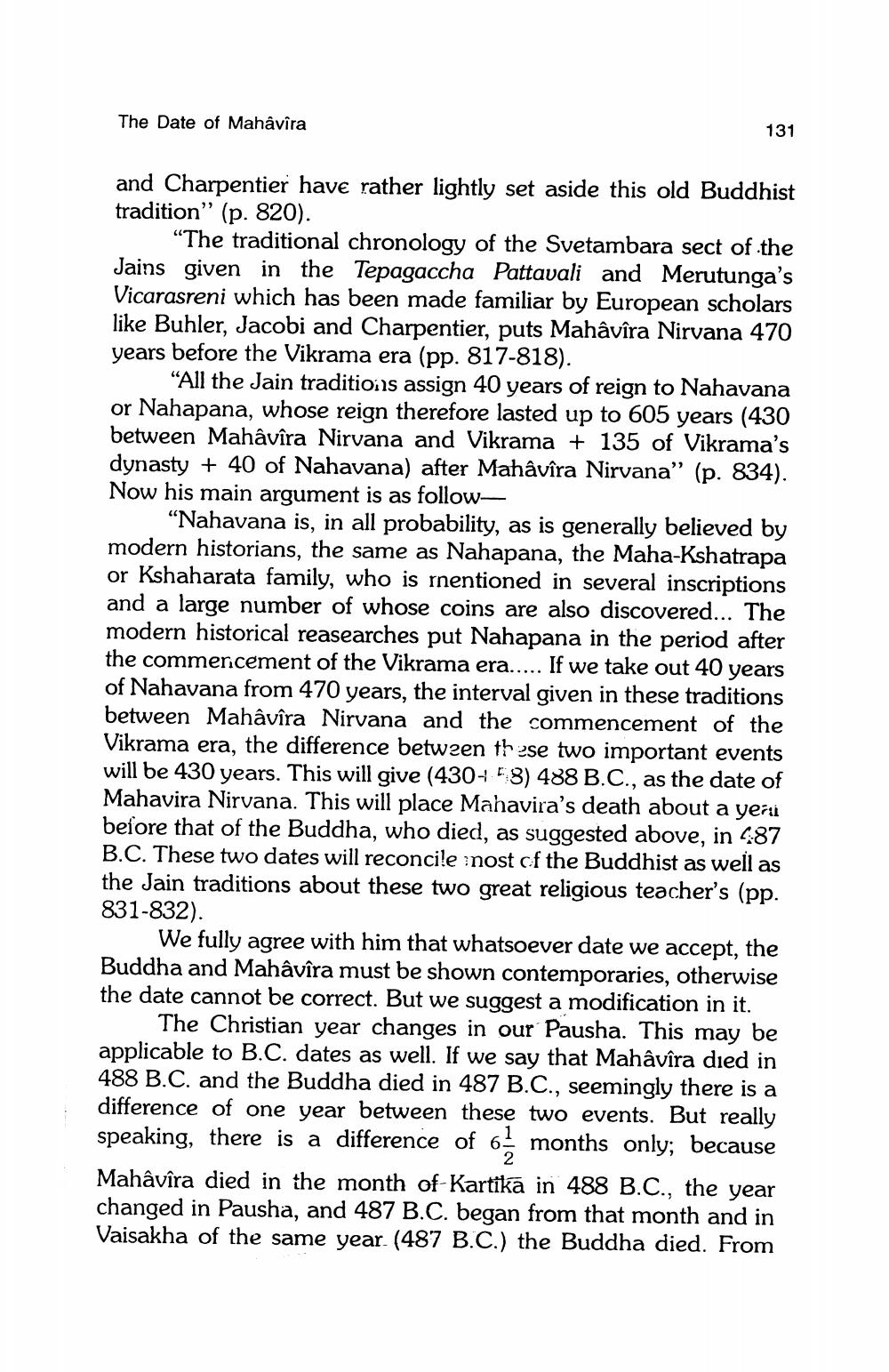________________
The Date of Mahâvîra
131
and Charpentier have rather lightly set aside this old Buddhist tradition” (p. 820).
"The traditional chronology of the Svetambara sect of the Jains given in the Tepagaccha Pattavali and Merutunga's Vicarasreni which has been made familiar by European scholars like Buhler, Jacobi and Charpentier, puts Mahâvîra Nirvana 470 years before the Vikrama era (pp. 817-818).
“All the Jain traditions assign 40 years of reign to Nahavana or Nahapana, whose reign therefore lasted up to 605 years (430 between Mahâvîra Nirvana and Vikrama + 135 of Vikrama's dynasty + 40 of Nahavana) after Mahâvîra Nirvana” (p. 834). Now his main argument is as follow
“Nahavana is, in all probability, as is generally believed by modern historians, the same as Nahapana, the Maha-Kshatrapa or Kshaharata family, who is rnentioned in several inscriptions and a large number of whose coins are also discovered... The modern historical reasearches put Nahapana in the period after the commencement of the Vikrama era..... If we take out 40 years of Nahavana from 470 years, the interval given in these traditions between Mahâvîra Nirvana and the commencement of the Vikrama era, the difference between these two important events will be 430 years. This will give (430458) 488 B.C., as the date of Mahavira Nirvana. This will place Mahavira's death about a yer before that of the Buddha, who died, as suggested above, i B.C. These two dates will reconcile nost of the Buddhist as well as the Jain traditions about these two great religious teacher's (pp. 831-832).
We fully agree with him that whatsoever date we accept, the Buddha and Mahâvîra must be shown contemporaries, otherwise the date cannot be correct. But we suggest a modification in it.
The Christian year changes in our Pausha. This may be applicable to B.C. dates as well. If we say that Mahâvîra died in 488 B.C. and the Buddha died in 487 B.C., seemingly there is a difference of one year between these two events. But really speaking, there is a difference of 6 months only; because Mahâvîra died in the month of Kartika in 488 B.C., the year changed in Pausha, and 487 B.C. began from that month and in Vaisakha of the same year. (487 B.C.) the Buddha died. From




